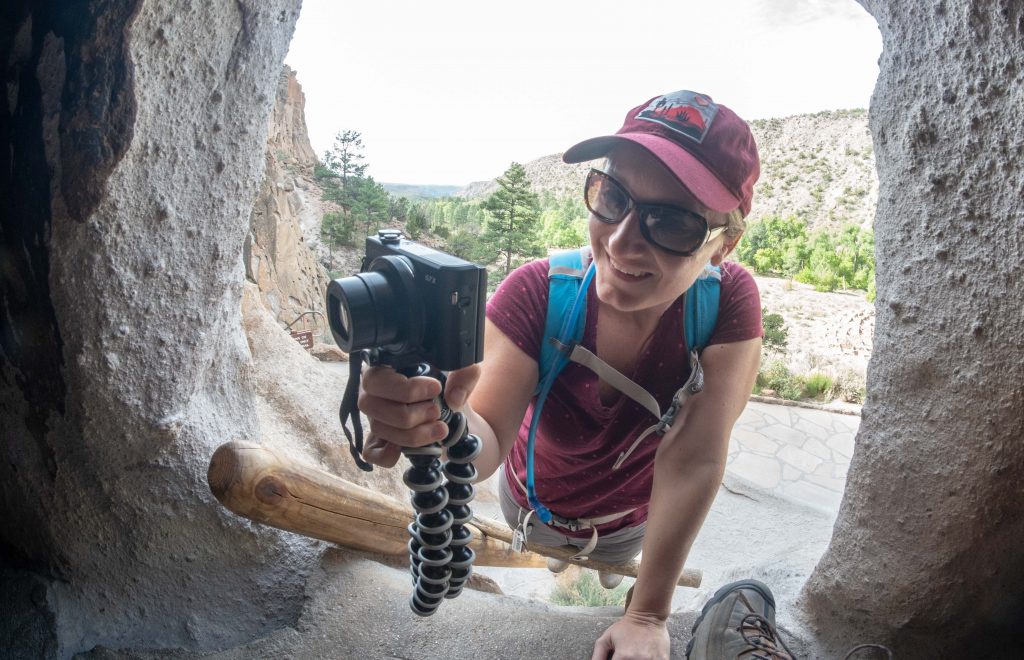Why you need a little "just in time" in your life
One of the things that I love the most about just in time learning is it demands action. We gotta do something in order to learn it. Fully immerse ourselves in it. Don't read. Don't think. Just do.

I used to be quite the go-getter. I would prepare ahead of time with almost everything I did. I'd read. I'd study. Lots and lots of prep, hours in front of a computer. Before I did anything, I wanted to know everything.
But, I eventually fell out of that habit. The longer I worked in corporate America - hell, the longer I lived my life, I began to realize a remarkable factor that I had never considered: Change. Constant change was wasting my time.
I remember one company that I worked for would change their software requirements so much that I effectively never had to deliver anything. Literally. I would spend time completing a task only to find out by the end of the week that the business (appropriate business buzzword: "stakeholders") now wanted something completely different. I'd throw away my work and start again, repeating the same process that had me churn out incredible volumes of wasted time and productivity.
Eventually, I learned that I could do almost nothing and my job would still be secure. Since I never actually had a deliverable that I needed to deliver, my work life quickly turned to mush. It was a perfect storm of nonsense. A hurricane of crap.
Somewhere in my 20s, I learned that a very similar phenomenon was at play in life, too. With few exceptions, I'd end up re-learning everything I learned during "preparation" because things changed so quickly. Or my environment would be slightly different. Variables just wouldn't be the same.
Or, I would promptly forget everything I read unless I put that knowledge to use right then. I have a remarkable ability to forget things that I don't think about almost daily. All that prep time was turning into a time sink, and fast.
Just in time vs. Just in case
I'm a just in time kind of person. Years of brutal reinforcement taught me that it's much too easy to jump from "being prepared" to simply over-preparation without even knowing it. It's an easy trap to fall into.
It's the "just in case" philosophy that we take too far.
Mind you, there's nothing wrong with being prepared. After all, packing in a bunch of water on your overnight camping expedition is probably a wise choice. And a sleeping bag, food, utensils and maybe even a satellite phone. Or, making sure your ride is full of fuel before your road trip to grandma's.
This is basic stuff, here. Easy "let's not act completely stupid" stuff that has kept us humans alive for an impressive number of generations.
The just in time vs. just in case debate, though, is a bit different. This isn't about basic preparation. I'm talking life philosophy here. Deep, existential shit.
At first blush, just in case seems to be far more responsible. For example:
Your emergency fund is just in case. You hope to never use that money, but if you need it, there it is. Ready and willing to help you out in a crisis.
Health insurance is also just in case, and similar to your emergency fund, you hope that you'll never actually need to use your health insurance benefits for things other than preventative care check-ups and simple procedures.
Heck, so is car insurance/homeowner's insurance. All this "just in case" stuff is a layer of support that's designed to prevent slipping straight down into the abyss. It's like the harness you wear on a zip line. Or your seatbelt.
Smart, these things.
Can just in case go too far?
There are obvious, almost required just in case kind of things. Like insurance. And taking basic, elementary steps to prepare yourself to address the world around you.
There are also less obvious just in case things that are choices we make for ourselves, choices that are entirely optional. We often make these choices subconsciously. Our lifestyles demand it. It's just who we are.
For example, the just one more year phenomenon in early retirement is a huge one. This is the insistence that we keep working one more year - over and over again, just in case we don't actually have enough money to survive the rest of our lives. Or, just in case something happens.
Or, we paralyze ourselves in research and "design" before starting a new business, meticulously studying the market and convincing ourselves that this "preparation" is going to better position our business for success. Then, very likely never start that business. We always find a reason not to. We're scared.
Analysis paralysis, anyone?
Maybe I shouldn't start that business, just in case things go south.
What if we learn as we go?
The just in time brainwave isn't quite "fly by the seat of your pants" stuff. We still prepare, but we also stop well short of over-preparation. We just do it. Dive in. Start that business. Quit our job. Then, we learn as we go. We learn exactly what we need to learn when we need it.
Instead of diving into marketing books and advertising jargon before we start our business, we just start. We build our product and learn marketing and advertising as we do it. We make mistakes, learn from those mistakes, and hope never to make the same mistakes again.
We might read books, but we read them when learning is most important. In other words, when we need to market our product, we learn marketing.
My wife and I live full-time in an Airstream RV, and we've employed a just in time lifestyle every step of the way. Neither of us read a single book or blog about RVing before we sold both of our homes and hit the road. We had no direct experience hitching up and pulling a 10,000 trailer. I had never pulled more than a small open trailer that held some ATVs.
We had no idea how to maintain an RV. Or how much electrical power we'd need when we're camped out in the middle of nowhere (btw, we love solar) or where we'd find water along the way.
At first blush, you might have assumed we were "unprepared".
But in truth, we weren't over-prepared. We learned as we went, and this new lifestyle has brought a level of happiness into our lives that's tough to put into words. We both jumped in head first, made some mistakes, but enjoyed far more of our days through our process of just in time learning.

Experience enables just in time learning
One of the things that I love the most about just in time learning is it demands action. We gotta do something in order to learn from it. Fully immerse ourselves in it.
Don't read. Don't think. Just do.
Most of what we learn comes outside of school. In the workplace. Interacting with people. Traveling. Most of us learn the best not when our heads are buried in a textbook, but when we’re experiencing the topic. More than one of our senses is firing on all cylinders. We aren’t just reading and memorizing facts.
We’re interacting. Our sense of sight, touch, smell, hearing, and taste are all sources that help us learn, and the more of those senses that we can employ, the more we’ll learn. We generally need more than just one or two to learn the best.
For example: We can read a book about public speaking, or we can actually speak publicly. We can listen to a teacher describe the plight of 3rd-world nations, or we can travel and see it for ourselves. You get the idea.
The more that we overwhelm ourselves, the more we’ll learn because it envelopes our senses. It forces us to interact in ways that may not feel comfortable.
Okay okay, a word of caution: Obviously, I'm not encouraging anybody to act recklessly. Ultimately, I believe that a mix of just in time as well as just in case works best for most people. The important part in all this is the ratio of that mix. We love tipping the scales in favor of just in time. We're flexible people, and we believe that we're able to experience more out of life by learning as we go rather than employing a more conservative lifestyle.
Learn what you need to learn when you need to learn it. Then, enjoy the rest of your life doing those things that you enjoy to do. You might be surprised at how much your learning process improves when you're learning on the fly, too. Your ability to ruthlessly pick through information and focus only on what's most important becomes second nature.
For us, it's the only way to live.
What does your just in time vs. just in case ratio look like? And, I'm curious: Can entrepreneurs truly be just in case people?